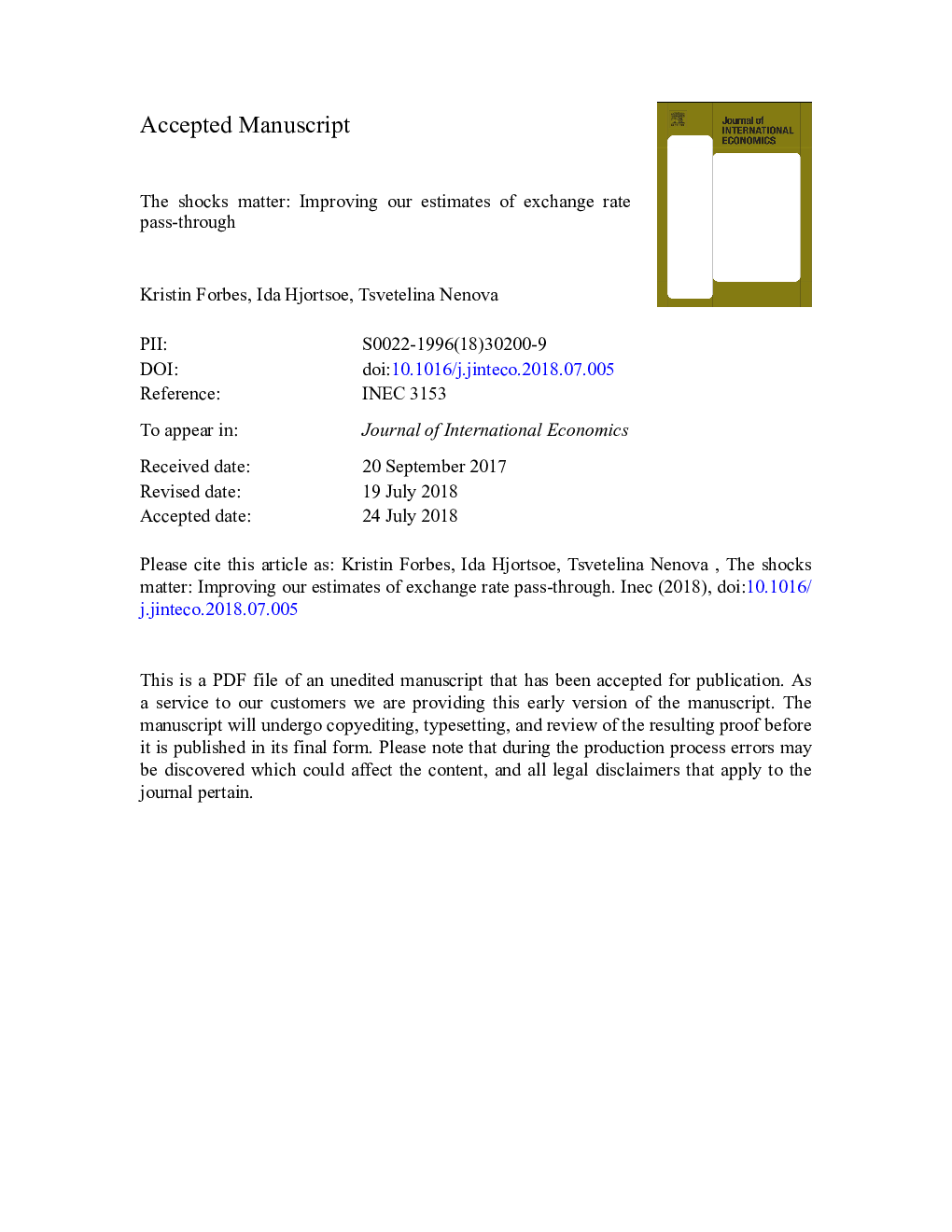| Article ID | Journal | Published Year | Pages | File Type |
|---|---|---|---|---|
| 7363828 | Journal of International Economics | 2018 | 55 Pages |
Abstract
A major challenge for monetary policy is predicting how exchange rate movements will impact inflation. We propose a new focus: directly incorporating the underlying shocks that cause exchange rate fluctuations when evaluating how these fluctuations “pass through” to import and consumer prices. A standard open-economy model shows that the relationship between exchange rates and prices depends on the shocks which cause the exchange rate to move. We build on this to develop a structural Vector Autoregression (SVAR) framework for a small open economy and apply it to the UK. We show that prices respond differently to exchange rate movements based on what caused the movements. For example, exchange rate pass-through is low in response to domestic demand shocks and relatively high in response to domestic monetary policy shocks. This framework can improve our ability to estimate how pass-through can change over short periods of time. For example, it can explain why sterling's post-crisis depreciation caused a sharper increase in prices than expected, while the effect of sterling's 2013-15 appreciation was more muted. We also apply this framework to forecast the extent of pass-through from sterling's sharp depreciation corresponding to the UK's vote to leave the European Union.
Related Topics
Social Sciences and Humanities
Economics, Econometrics and Finance
Economics and Econometrics
Authors
Kristin Forbes, Ida Hjortsoe, Tsvetelina Nenova,
